Dinaw Mengestu Quotes & Sayings (Page 2)
Dinaw Mengestu quotes and sayings page 2 (novelist). Here's quote # 11 through 20 out of the 28 we have.
“The fact that I have always been deeply invested in politics, and African politics in particular, inevitably played a role in my first novel and, of course, in my decision to write about a handful of particular conflicts in Africa as a journalist.”
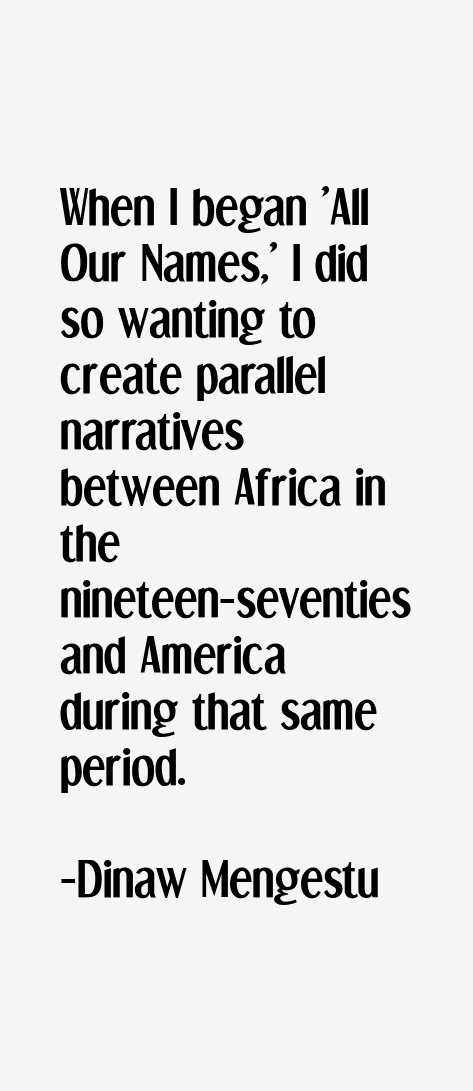
“When I began 'All Our Names,' I did so wanting to create parallel narratives between Africa in the nineteen-seventies and America during that same period.”
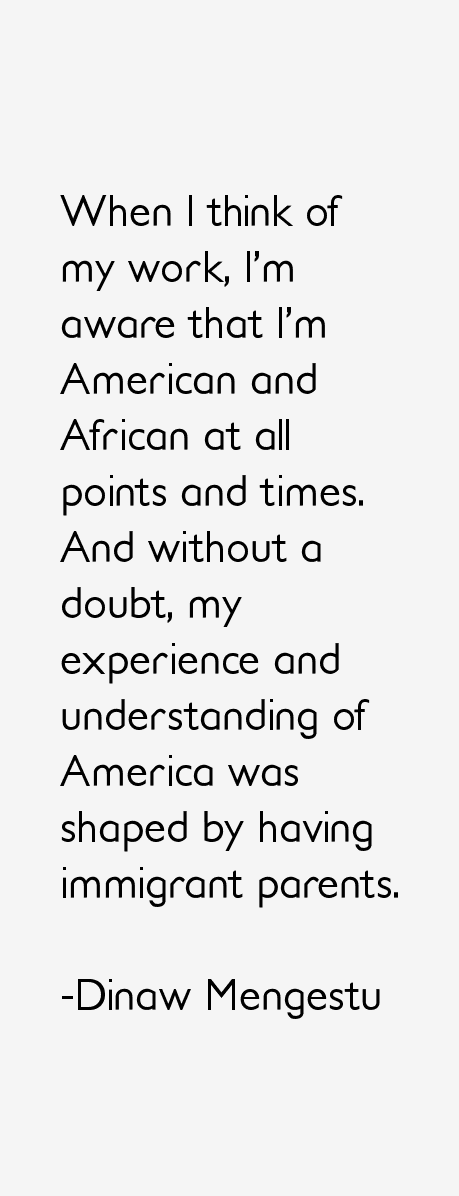
“When I think of my work, I'm aware that I'm American and African at all points and times. And without a doubt, my experience and understanding of America was shaped by having immigrant parents.”

“Writers, especially those of us with roots in other countries, are rarely left to ourselves. We are asked to declare our allegiances, or they are determined for us.”
“Obviously, in marketing, the best tool is to show the autobiography in fiction. It's inevitable how that happens, but it's generic. Say I've written a story where my sister dies. 'Well, did your sister die?' No, she did not. But people use those straws to grasp at the difference between reality and fiction.”
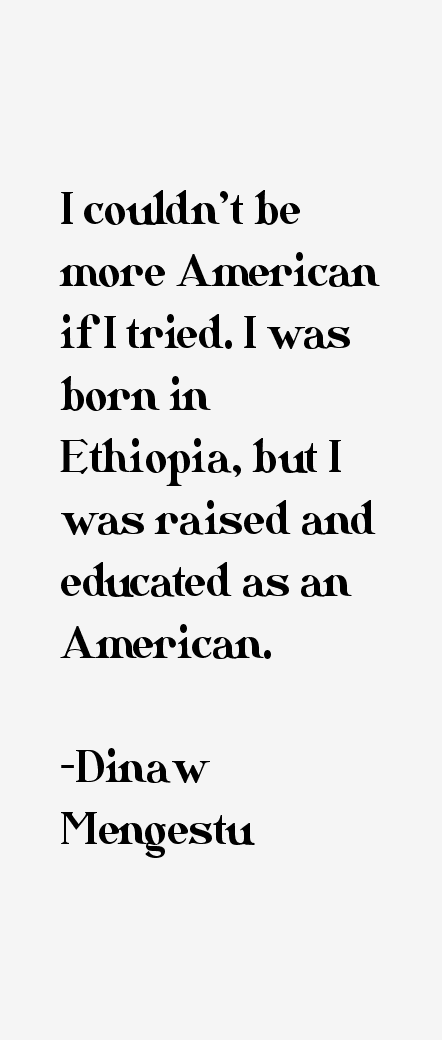
“I couldn't be more American if I tried. I was born in Ethiopia, but I was raised and educated as an American.”

“I told my parents I was going to be a doctor and then a lawyer, but I never believed it and never tried.”
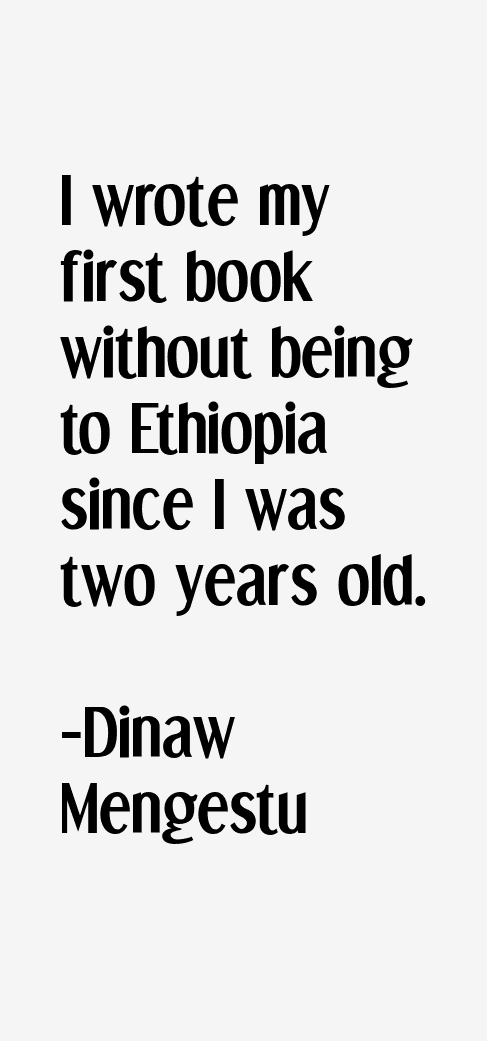
“I wrote my first book without being to Ethiopia since I was two years old.”
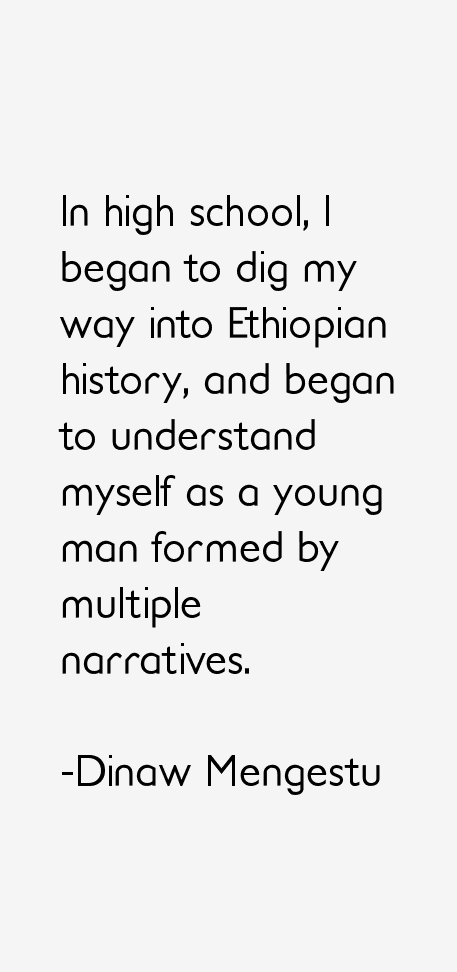
“In high school, I began to dig my way into Ethiopian history, and began to understand myself as a young man formed by multiple narratives.”
“Most of my favorite writers are over forty, and so I suppose I'll only name a few of the writers whose work I find myself constantly returning to: Edward P. Jones, Marilynne Robinson, Kazuo Ishiguro, V. S. Naipaul, Toni Morrison, and Philip Roth.”
Dinaw Mengestu Quotes Rating
No Ratings Yet
Leave A Comment
























